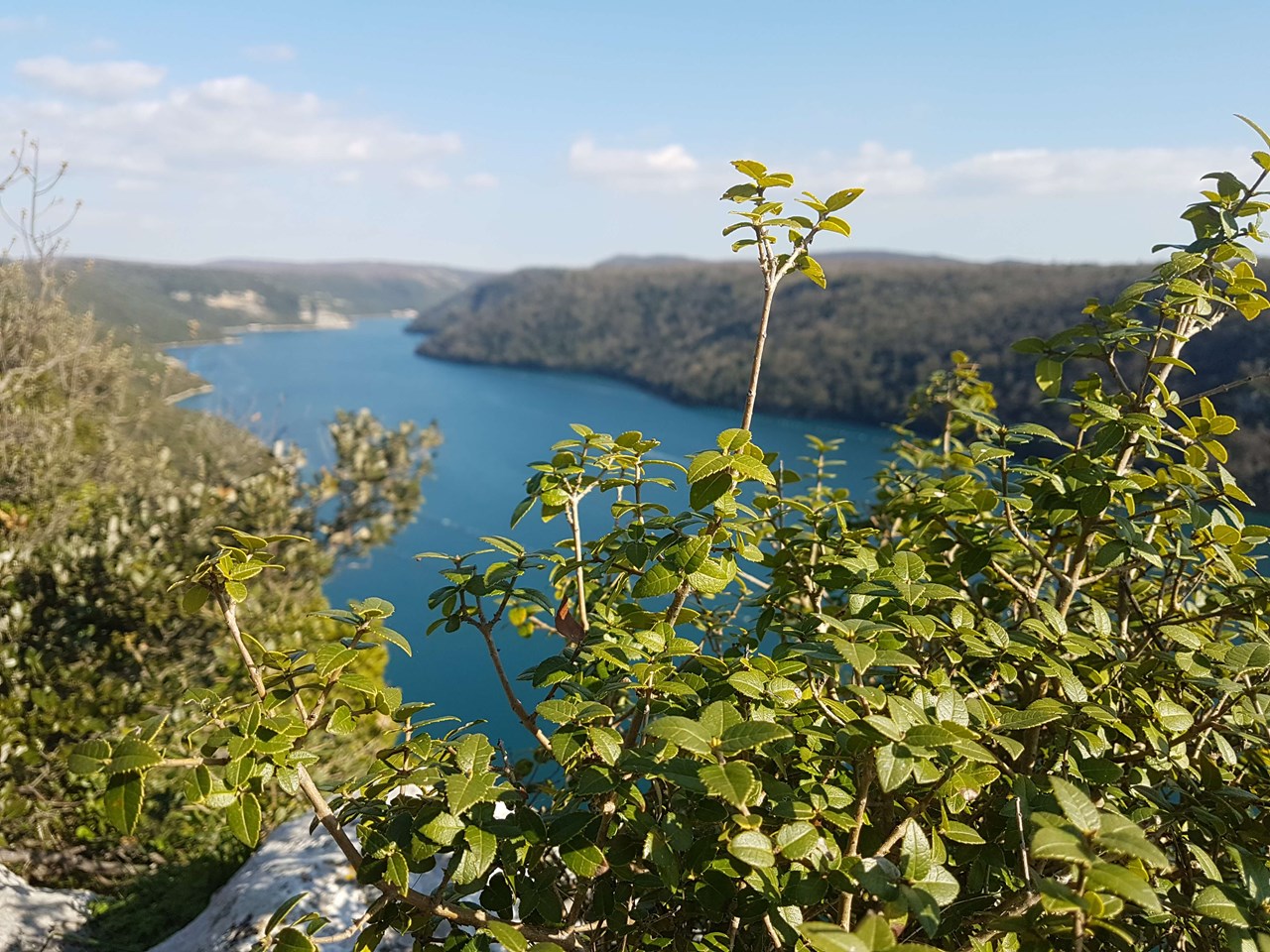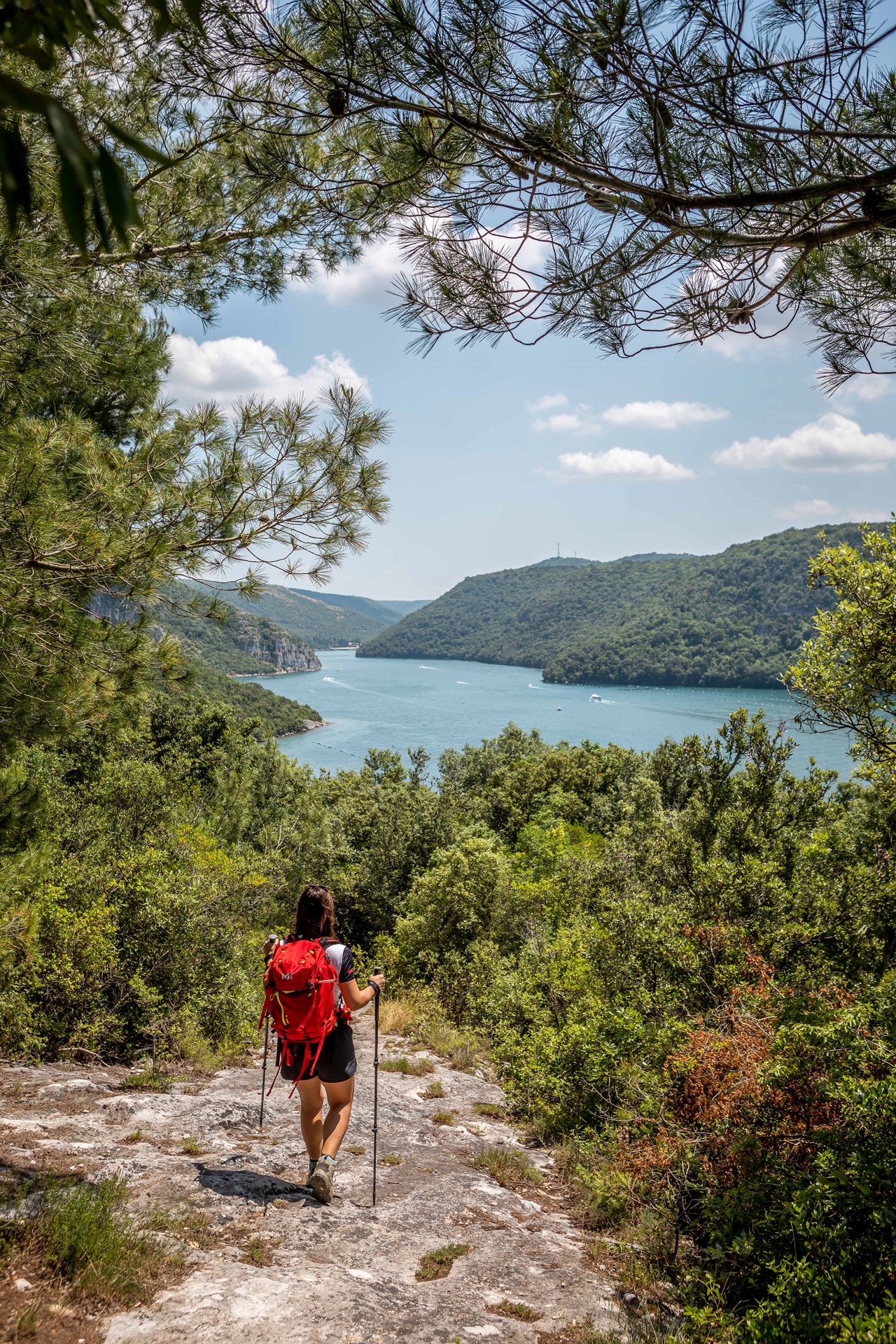

Lim Bay is a separate and unique natural and ambiental phenomenon of the area around Vrsar. This submerged valley of the former karst river canyon linked to a dry river bed in a river valley (the Draga) encompasses a series of geological, topological, climatic, vegetational and historical characteristics and features.
Lim Bay is a submerged karst river bed. It is 12.8 km long. Lim Bay as it exists today was formed during the last thawing, in Jurassic limestone with shores reaching up to 150 m above sea level.

Lim Bay is a submerged karst river bed. It is 12.8 km long. Together with the dried-out river bed which is connected to it, it constitutes a formation (the Draga) 35 km long, stretching deep into inland Istria. Lim Bay is 600 m wide at its mouth, 400 m in its middle part, and 200 at its back. At the mouth of the bay, the altitude of the shore is 26 m on the northern side, 67 m on the southern side, while in the middle part the altitude of the shore is approximately 95 m on both sides. At the back of Lim Bay, the altitude of the shore is up to 177 m on the northern side and up to 230 m on the southern. The depth is 32 m at the mouth, 30 m in the middle and 19 m at the back. Since 1964 it has been protected as a geomorphological and hydrogeological locality in the significant landscape category, and since 1980 as a special sea reserve.
Lim Bay as it exists today was formed during the last thawing, in Jurassic limestone with shores reaching up to 150 m above sea level.
The shores of Lim Bay are overgrown with evergreen oak (Quercus ilex L.), green olive tree (Phillyrea latifolia L.), strawberry tree (Arbutus unedo L.), laurestine (Viburnum tinus L.), common smilax (Smilax aspera L.), mastic (Pistacia lentiscus L.), Oriental hornbeam (Carpinus orientalis Mill.) and flowering ash (Fraxinus ornus L.). The microclimate is suitable for sub-Mediterranean communities of downy oak (Quercus pubescens Willd.) and Turkey oak (Quercus cerris L.). Such a diversity of vegetation on a small area is a unique and special ecological rarity.

Lim Bay has been a significant landscape, and has been adequately protected as such. With the consent of the Institute for the Protection of Nature, only those works that will not significantly alter the current state of the natural environment are permitted in Lim Bay.
The northern shore of Lim Bay is markedly Mediterranean. It falls mostly under the Municipality of Vrsar, and is much more exposed to the sun than the southern shore (Rovinj side).
Since 1964, Lim Bay has been a significant landscape, and has been adequately protected as such. With the consent of the Institute for the Protection of Nature, only those works that will not significantly alter the current state of the natural environment are permitted in Lim Bay.
Due to its special characteristics, Lim Bay has remained a special ambient of a continuity of settlement spanning ages. The area has been inhabited since prehistory; stone extraction, fishing and fish farming have been practiced here for millennia; and Christian communities and churches have been present here since the Middle Ages.
Lim Bay inherit in itself the age-long and today still valid tradition of border delineation (lat. limes = boundary, border). Its shores and bottom are relatively unexplored, and there are several localities that may harbour remains from different historical periods.
It is an area which will certainly attract more attention from scientists in the near future since Lim Bay is, with regard to all its aspects, a scientifically interesting subject matter.